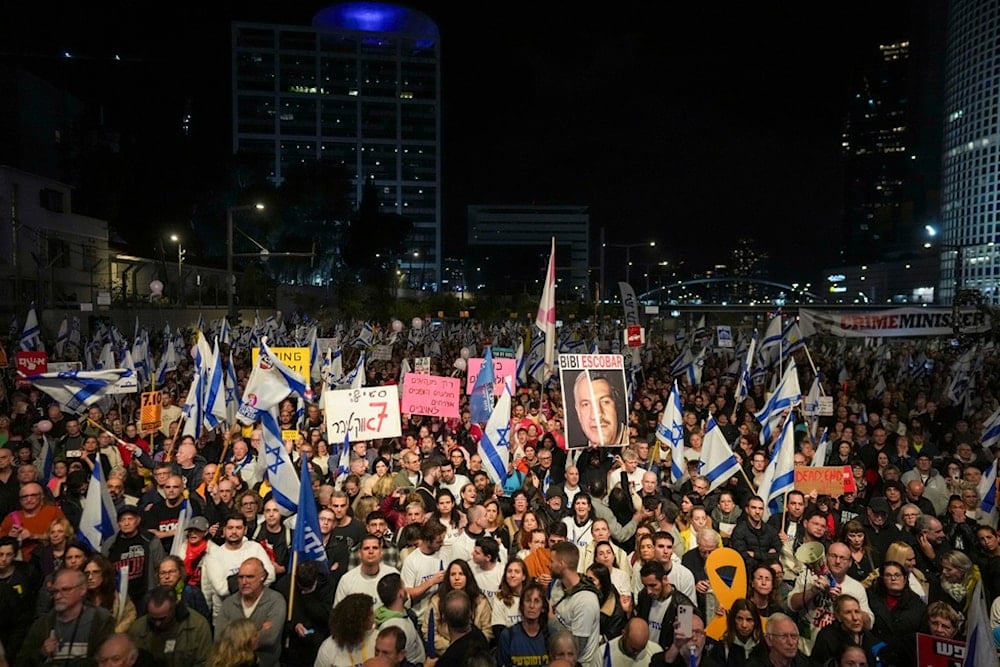Israeli police arrest protesters near Netanyahu's home
The Israeli occupation police arrest numerous protesters as they demand a prisoner exchange deal to return the captives held in Gaza.
-

Israelis protest against Prime Minister Benjamin Netanyahu's government and call for the release of captives held in the Gaza Strip by Hamas in Tel Aviv, occupied Palestine, on Saturday, December 21, 2024 (AP)
The Israeli police arrested four protesters near the residence of Prime Minister Benjamin Netanyahu in occupied al-Quds during a demonstration supporting a captive-prisoner swap deal with Palestinian Resistance groups.
Dozens of families of prisoners gathered outside the residence of Israeli President Isaac Herzog in Tel Aviv, urging him to pressure the government and its leader to finalize the exchange agreement.
Protests spread across more than 70 locations in occupied Palestine, from the north to the south, following a call by the Captives' Families Committee to participate in evening demonstrations. The committee stressed the importance of "accelerating the completion of the prisoner exchange deal, especially as talks in Doha continue."
The main demonstrations took place in Tel Aviv, occupied al-Quds, and Haifa. In Tel Aviv, large-scale protests blocked the road leading to the Ministry of Security.
Additionally, sit-ins were held outside the residences of Knesset Foreign Affairs and Security Committee Chair Yuli Edelstein in Herzliya and Education Minister Yoav Kisch in Hod Hasharon.
The Israeli Captives' Families Committee accused Netanyahu of indifference to the prisoners' plight, stating, "He does not want the war to end and is running a campaign to prolong it."
On Saturday evening, Hamas' military wing, the Ezzeddine al-Qassam Brigades, released a video of Israeli captive Liri Elbag, 19, in which she accused the Israeli government and military of "manipulating the fate of hostages."
Netanyahu cabinet more important than captives
Benny Gantz, the leader of the Israeli National Unity Party, said Tuesday that for Israeli Prime Minister Benjamin Netanyahu, the survival of his government is more important than the return of the captives held in Gaza.
“Of the three goals of the war that concern the Gaza Strip, two have not yet been achieved – the collapse of Hamas’s rule and the return of our hostages,” Gantz said at a conference organized by the Calcalist financial daily.
He explained that it is more important for Netanyahu "to survive politically than to allow another civilian government in the Gaza Strip," and therefore the Israeli military "will continue to wallow there for a long time."
Gantz's remarks come shortly after Israeli media reported that Israeli military officials have repeatedly warned Netanyahu that the lack of a "day after" plan for the war on the Gaza Strip will lead to the rehabilitation of Hamas’ authority.
Israeli newspaper Yedioth Ahronoth cited the officials as saying that "to bring down Hamas’ rule, there must be a decision between handing over the reins to the Palestinian Authority or establishing military governance, but Netanyahu rejects both alternatives."
The officials also cautioned that the situation in the Gaza Strip could spill over into the occupied West Bank.

 3 Min Read
3 Min Read








